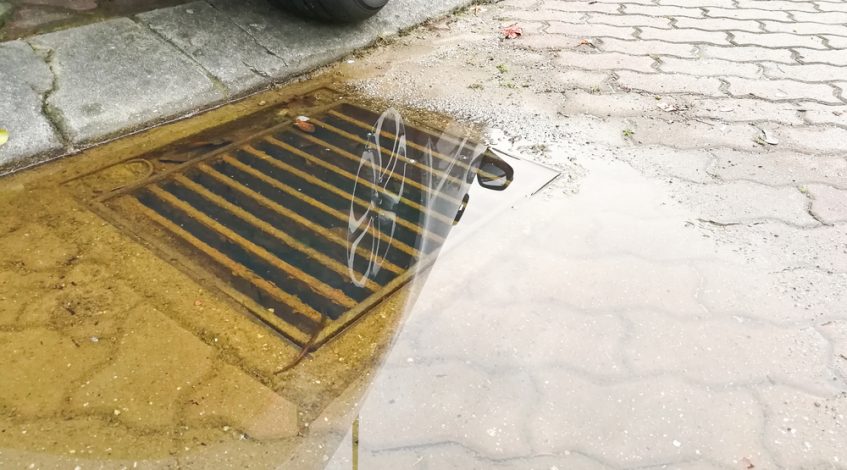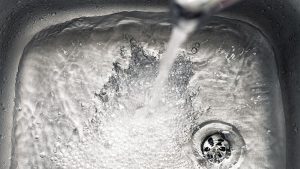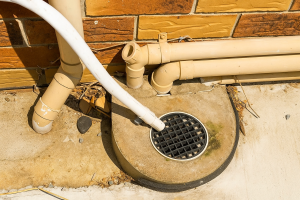If you go overseas and ask people how much they know about Australian rainfall, many of them will say they didn’t think it rained much at all on our red, cracked soil. But while our country does have some of the driest regions on the entire planet, every Australian knows that when it does rain here … it really, really pours. To cope with that, our properties need effective stormwater drainage and management, so that all of that excess water doesn’t damage our property and threaten our health.
But who is responsible for storm water drains, exactly? Is it the property owner, or the local and state authorities? Let’s explore:
First things first: Whose stormwater is it?
You may think the answer to the above question is obvious … but is it? That’s because while the gutters and downpipes are yours, the communal drains that the stormwater ultimately runs into are not. The general rule across Australia, therefore, is that while the storm water drain on property owned by you is your responsibility, once it’s left your property it’s someone else’s problem.
Digging a little deeper, though, the rules about who is responsible for storm water drains differ slightly from state to state:
New South Wales:
In NSW, the local councils manage stormwater on public land like parks and roads, but also private landowners who pay a levy for stormwater management. This means that if stormwater is draining from another private property onto yours, the council can be informed and intervene.
- Get help with blocked drains Sydney
- Get help with blocked drains Penrith
- Get help with blocked drains Newcastle
Victoria:
In Victoria, stormwater management is considered to be a joint responsibility shared by property owners and local municipal councils. It means the council is responsible for the water between the discharge point, kerb and channel, while the landowner is responsible for their own pipes and drains. When a new drainage system is going to be installed, a building surveyor needs to check the design.
- Get help with blocked drains Melbourne
Queensland:
In Queensland, the property owner must maintain all of the stormwater drains, pipes, gutters, downpipes, pits and other components on their own land, with the councils taking over responsibility for everything else.
- Get help with blocked drains Brisbane
- Get help with blocked drains Gold Coast
- Get help with blocked drains Sunshine Coast
South Australia:
It’s a similar story in SA, where according to the Stormwater Management Authority, the joint responsibility is shared between the landowner and the state and local governments. Basically, all the stormwater infrastructure on your property is your responsibility, and everything on the council land is the business of the local authorities.
- Get help with blocked drains Adelaide
Tasmania:
In Tasmania, the issue of stormwater flooding is presided over by the local councils, who insist that property owners keep their pipes, gutters, downpipes pits and other stormwater infrastructure on their land in good condition. The exception is when sewerage and stormwater systems are combined, in which case Tasmania’s water authority TasWater has responsibility.
Western Australia:
Similarly, the WA government offloads stormwater management to the local authorities, while the government itself provides the relevant floodplain mapping and water management plans.
Australian Capital Territory and Northern Territory:
In the ACT, landowners are told to design their properties so they are safe from springs and runoff, while Roads ACT has responsibility for the management, monitoring and maintenance of the actual municipal stormwater network. In the Northern Territory, it’s the same story, with local councils empowered to manage, install and replace drains that are connected to private properties.
- Get help with blocked drains Canberra
How do you know if the stormwater blockage is on your land or the councils?
If in doubt, a blocked drain plumber can help. Once they assess the blockage most councils will allow them to claim back expenses for emergency drain plumbing if the blockage is found to be the councils responsibility.
Need a great local plumber to help with your stormwater?
If you’ve got a question about your own stormwater drains and associated components, the right people to talk to are your local council and a great local plumber. And to find the very best plumbers near you, Best Plumbers Club is here to help! We work with only the best local plumbers all over Australia’s seven states and territories to ensure that when you need one, you connect only with a plumber who is highly recommended and positively reviewed. Send us a message today and we’ll get a great local plumber to get in touch.







